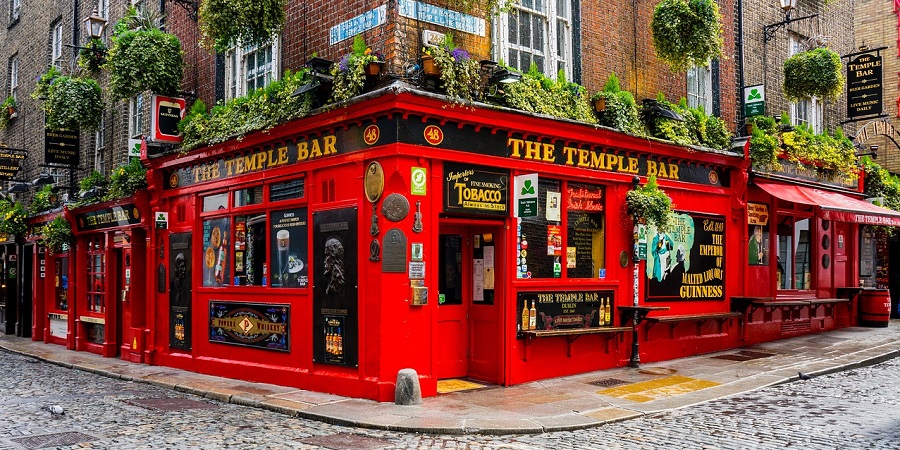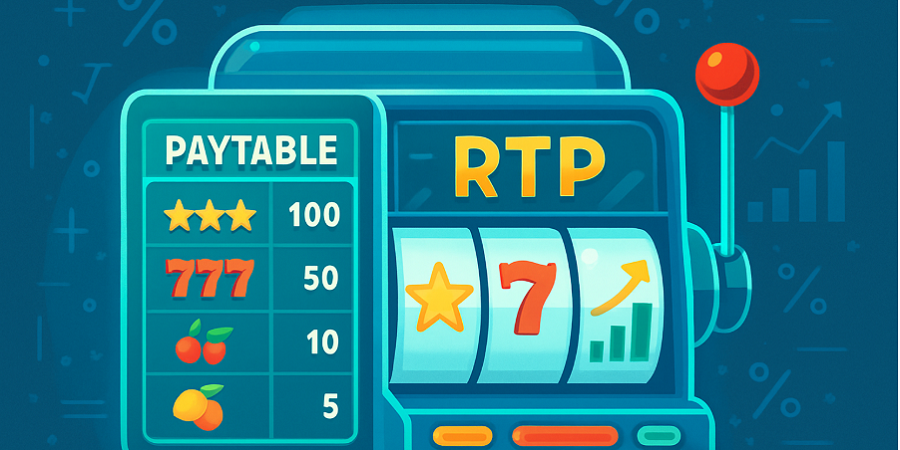The sports betting industry is a major part of gambling in both Ireland and the United Kingdom. Even though the two countries share similar histories, cultures, and technologies, there are important differences in how their markets are regulated, how consumers place bets, how tax systems are applied, and how large each market is. Ireland’s regulatory framework is still evolving, while the UK Gambling Commission oversees a more established and structured environment.
In terms of digital adoption, both countries are embracing mobile-first betting, but UK operators have invested more heavily in advanced data analytics and algorithm-driven odds generation, giving them a technical edge in user personalization and risk management. For instance, predictive modelling and machine learning are widely used in the UK to dynamically adjust odds and detect suspicious betting patterns in real time, enhancing both user experience and integrity controls. Irish punters are increasingly engaging not only with sports betting but also with platforms offering broader gaming experiences. Websites that offer the best online casino Ireland options often provide integrated sportsbooks, reflecting a trend where online casinos and sports betting coexist seamlessly in the Irish market.
Both UK and Irish sportsbooks are now commonly linked with online casinos. Integrated platforms allow users to access sports betting, slots, poker, and live dealer games from a single account. This crossover is particularly evident in marketing strategies and promotional structures. For example, many users who register to access the best online casinos are also offered free bets or sports betting credits, reinforcing cross-product engagement and brand loyalty. This strategy has helped operators improve user retention and increase the average time spent on their platforms.
Market Size and Economic Impact: United Kingdom v Ireland
The UK sports betting market is one of the largest in the world. According to data from the UK Gambling Commission, the gross gambling yield for sports betting alone was approximately £2.4 billion from April 2022 to March 2023 (UKGC Report). Online sports betting accounted for over 50 percent of total betting activity, driven by major digital platforms that offer comprehensive markets and user-friendly interfaces.
In Ireland, the total betting market was valued at around €1.1 billion in 2023, with over 75 percent of wagers placed online (Irish Bookmakers Association). Though smaller than the UK, Ireland has one of the highest gambling spends per capita in Europe. The Irish government reported over €10 billion staked annually by punters across all forms of betting, including sports and racing.
The Irish market, while more compact, benefits from a highly engaged user base and strong mobile penetration. Domestic operators focus on advanced betting features such as live in-play odds and real-time match statistics to maintain competitiveness. Furthermore, the adoption of automated risk management systems and dynamic pricing algorithms is becoming widespread across Irish platforms, helping to optimize betting margins and reduce financial risk during periods of high betting volume.
For example, machine learning models are increasingly used to adjust odds dynamically based on betting patterns, minimizing exposure to large losses. Similarly, predictive analytics help operators identify unusual betting activity promptly, enhancing fraud detection and ensuring regulatory compliance.

Regulatory Environment
The UK is often considered a benchmark in gambling regulation. The UK Gambling Act of 2005 established the Gambling Commission, which oversees all forms of gambling including online sports betting and casino games. The UK has comprehensive rules covering advertising standards, player protection measures, self-exclusion programs such as national registers and strict license compliance requirements to ensure operator accountability.
As of 2024, the UK government introduced the Gambling White Paper, which brought in stricter affordability assessments to prevent problem gambling, new limits on stakes for online slot games and enhanced consumer protections to ensure fair play and transparency (UK Government White Paper). The use of data analytics for monitoring suspicious betting patterns has also increased, allowing regulators to intervene more quickly and effectively.
Ireland is currently undergoing a significant regulatory transformation. The industry was previously governed by older laws dating back to the 1930s and 1950s, which many experts considered insufficient for modern gambling environments. However, the Gambling Regulation Bill passed in 2023 established the Gambling Regulatory Authority of Ireland, tasked with enforcing new regulations modelled after UK standards.
This new regulatory authority plans to introduce operator licensing requirements; advertising controls and a national self-exclusion register aimed at protecting vulnerable players. Despite these developments, Ireland’s regulatory framework is still being rolled out and will not be fully operational until 2025, leaving certain enforcement gaps compared to the UK at present (Department of Justice Ireland). Until then, operators in Ireland operate with fewer compliance burdens, creating potential regulatory arbitrage between the two markets.
Taxation and Licensing
In the UK, gambling operators are subject to a 15 percent Remote Gaming Duty for all online betting activities and a 21 percent Machine Gaming Duty on retail gaming machines. Additionally, bookmakers pay a General Betting Duty of 15 percent based on their profits. This dual taxation system ensures that both online and offline operations contribute fairly to government revenues, while also encouraging operators to focus on profitability and responsible risk management. For example, the profit-based model incentivizes operators to optimize betting margins and reduce risk exposure through sophisticated odds setting and portfolio management.
Ireland, on the other hand, imposes a 2 percent betting turnover tax on all bookmakers, which means tax is calculated on the total amount wagered rather than net profits. This difference creates a significant variance in tax burdens between the two markets. Smaller operators in Ireland have voiced concerns that this turnover-based tax disproportionately affects their margins, especially during periods of low win rates or high payout volumes. This can lead to increased financial pressure, forcing some operators to adjust their product offerings or risk management strategies to maintain viability. In 2023, the Irish government began consultations to potentially revise this model to align more closely with profit-based systems, but no legislative changes have been finalized yet (Revenue Commissioners Ireland).
Licensing processes also differ substantially. The UK’s licensing framework requires detailed operator vetting, ongoing compliance audits, and strict financial reporting, which fosters transparency and consumer confidence. This includes mandatory anti-money laundering controls and player protection measures, supported by real-time monitoring systems. Ireland’s new regulatory authority aims to implement similar licensing rigor by 2025, including mandatory risk assessments and data protection standards.
Until then, the licensing landscape in Ireland remains less mature, which may influence market entry strategies for operators looking to expand across both jurisdictions, as some may prioritize markets with clearer regulatory certainty and established compliance infrastructures.
Consumer Behavior and Betting Preferences
UK bettors show strong preferences across a diverse range of sports, with football, horse racing and tennis consistently ranking as the most popular markets. Live in-play betting has become a dominant feature of the UK market, accounting for over 55 percent of online betting volume according to the Gambling Commission UK. This trend is supported by sophisticated real-time data feeds and fast bet settlement technologies, enabling punters to place wagers during matches with updated odds reflecting ongoing events.
Irish punters have a particularly strong cultural attachment to horse racing and greyhound racing, with major events such as the Cheltenham Festival attracting significant betting volumes. Football betting, especially on Premier League matches, is growing rapidly in Ireland, reflecting broader European trends. Although in-play betting is currently less prevalent in Ireland compared to the UK, the gap is narrowing due to widespread adoption of mobile betting apps and enhanced live streaming services. Advanced user interfaces and faster data transmission have made real-time betting more accessible, encouraging more dynamic betting strategies among Irish consumers.
Furthermore, Irish bettors tend to favor straightforward betting options and value transparency in odds, while UK bettors show increased interest in complex bet types such as accumulators and handicaps. This difference influences how operators design their platforms and promotional offers in each market, tailoring user experiences to regional preferences.

Final Thoughts
While the UK sports betting market remains larger and more mature, Ireland is rapidly modernizing through regulatory reform and digital adoption. The two markets are closely connected in terms of consumer preferences and shared operators, but differ significantly in taxation and regulation. With the implementation of the new Irish Gambling Regulatory Authority, the gap in consumer protection and operator oversight is expected to close in the coming years.
Looking ahead, both markets are likely to experience further convergence between sports betting and other gaming products. This trend is driven by advancements in data analytics and artificial intelligence, which enable operators to deliver highly personalized betting experiences by analyzing user behavior, betting patterns and real-time event data. For example, AI-powered recommendation engines can suggest tailored bet types and promotions, increasing user engagement and retention.
Additionally, the growth of Irish online casinos reflects this convergence, with integrated platforms offering seamless transitions between casino games and sports betting within a single user account. Regulators in both markets are also expected to strengthen compliance requirements around responsible gambling technology, mandating the use of real-time risk monitoring tools to identify problematic betting behavior earlier. These technological and regulatory developments will shape the future of gambling across Ireland and the UK, making it more dynamic, secure and user-focused.









